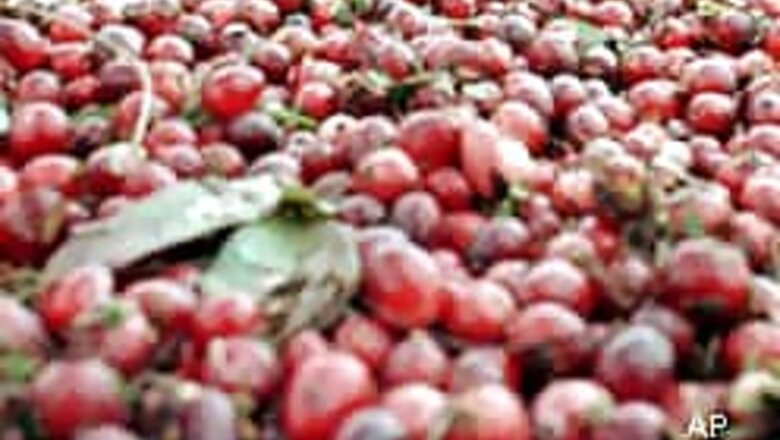
views
New York: Compounds in cranberry juice have the ability to change E coli bacteria, a class of micro-organisms responsible for a host of human illnesses, in ways that render them unable to initiate an infection.
A study by scientists at the Worcester Polytechnic Institute (WPI), Massachusetts, suggests cranberry may provide an alternative to antibiotics for combating E coli bacteria that have become resistant to conventional treatment, reported science portal EurekAlert.
E Coli is a germ that causes severe cramps and diarrhoea.
The symptoms are worse in children and older people, and especially in people who are already suffering from other illnesses.
Previous studies have found that Tannins (called proanthocyanidins), a compound found in cranberry juice can render E coli bacteria ineffective.
The bacteria are also known to cause urinary tract infections apart from other diseases.
Urinary tract infections (UTIs), each year affect eight million people, mostly women, the elderly, and infants, resulting in $1.6 billion in health care costs.
Until now, scientists have not understood exactly how cranberry juice prevents UTIs and other bacterial infections.
However, they have suspected that compounds in the juice somehow prevent bacteria from adhering to the lining of the urinary tract.
The latest study reveals how the compounds interfere with adhesion at the molecular level.
The new findings paint a detailed picture of the biochemical mechanisms that may underlie a number of beneficial health effects of cranberry juice that have been reported in other studies over the years.
It shows that the tannins found primarily in cranberries affect E coli in three devastating ways, all of which prevent the bacteria from adhering to cells in the body, a necessary first step in all infections.




















Comments
0 comment